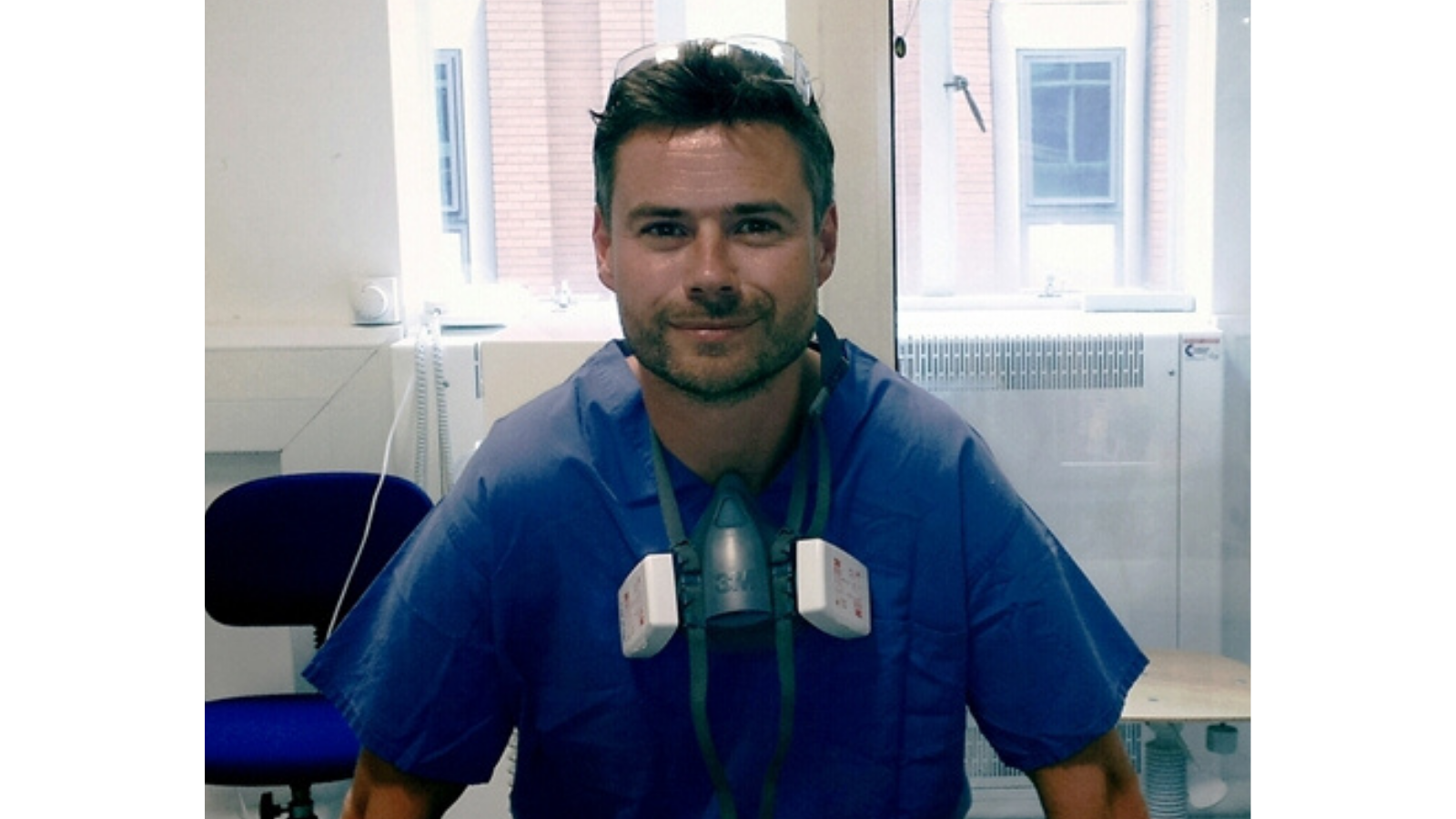
A network of institutions with specialist expertise in infectious diseases – including the Royal Free London - has published timely new research on monkeypox in the UK.
The report, Clinical features and management of human monkeypox: a retrospective observational study in the UK, which was published in The Lancet Infectious Diseases, includes analysis of seven monkeypox cases seen between 2018 and 2021.
Human monkeypox was rarely seen outside Africa prior to the current outbreaks, and was mostly linked to travel to countries in Africa where monkeypox occurs.
Known symptoms of the virus include fever, a characteristic rash, and swelling of the lymph nodes. Complications are uncommon, but can include inflammation of the lungs, brain and eyes, along with secondary bacterial infections.
Members of the England’s High Consequence Infectious Diseases (HCID) network, which includes the Royal Free London, have contributed to the research.
Jake Dunning (pictured), clinical lead for HCID at the Royal Free London and co-author of the study, said: “Since we set up the national HCID programme in 2016, and the Royal Free London team diagnosed the first travel-associated case outside Africa in 2018, we have been working on preparing to care for and study more cases. Therefore, detailed clinical and virological information like this is important, not only for the current, unprecedented outbreaks we are seeing, but for improving our understanding of monkeypox generally.
“It supplements important clinical case-series from countries in Africa where monkeypox occurs, and all countries now need to work together more effectively to study and control this emerging infection.”
Using a case-note review, the study identified limited transmission within the UK, including transmission to a healthcare worker and within a household. All cases had serial monitoring of blood, urine and throat swabs for monkeypox virus by PCR performed at the UKHSA Rare and Imported Pathogens Laboratory.
This is the first study of its kind and it demonstrated prolonged viral positivity within a variety of body sites, changing the understanding of the biology of this disease.
The patients were cared for in specialist HCID centres in Liverpool, Newcastle and London, including the Royal Free Hospital, which was coordinated via a national HCID network.
Their treatment included the first use of antiviral agents in patients with monkeypox.
Hugh Adler from the Liverpool School of Tropical Medicine, and co-author of the study, said: “While the study size was small, the data gleaned from the seven cases were rich, providing the team with novel insights and suggesting the direction of travel for future research. We hope this dataset will inform clinicians caring for patients with monkeypox across the UK and Europe, but also in West and Central Africa where there is an unmet need for treatments for this infection. And working collaboratively with the NHS England High Consequence Infectious Diseases (Airborne) Network has been a fruitful experience.”
The paper concluded that human monkeypox poses unique challenges, even to well-resourced healthcare systems with HCID networks. The study emphasised an urgent need for prospective studies of antivirals for this disease and that the infection control implications of viral shedding should be considered in future outbreaks.
The study has been coordinated the UK’s High Consequence Infection Diseases Network and with support from the International Severe Acute Respiratory and Emerging Infection Consortium and includes authors from: Liverpool School of Tropical Medicine; University of Liverpool; Liverpool University Hospitals NHS Trust; Guy’s and St Thomas’ NHS Foundation Trust, Alder Hey Children’s NHS Foundation Trust; UKHSA; University College London; Newcastle-upon Tyne NHS Foundation Trust; University of Newcastle; Royal Free London NHS Foundation Trust; University of Oxford; Royal Devon and Exeter NHS Foundation Trust; Sheffield teaching Hospitals NHS Foundation Trust; Karolinska Institute, Sweden.
Hugh Adler, Susan Gould, Paul Hine, Luke B Snell, Waison Wong, Catherine F Houlihan, Jane C Osborne, Tommy Rampling, Mike BJ Beadsworth, Christopher JA Duncan, Jake Dunning, Tom E Fletcher, Ewan R Hunter, Michael Jacobs, Saye H Khoo, William Newsholme, David Porter, Robert J Porter, Libuše Ratcliffe, Matthias L Schmid, Malcolm G Semple, Anne J Tunbridge, Tom Wingfield, Nicholas M Price on behalf of the NHS England High Consequence Infectious Diseases (Airborne) Network.
Please note that this photograph was taken before masks become mandatory in NHS hospitals.
 Translate
Translate